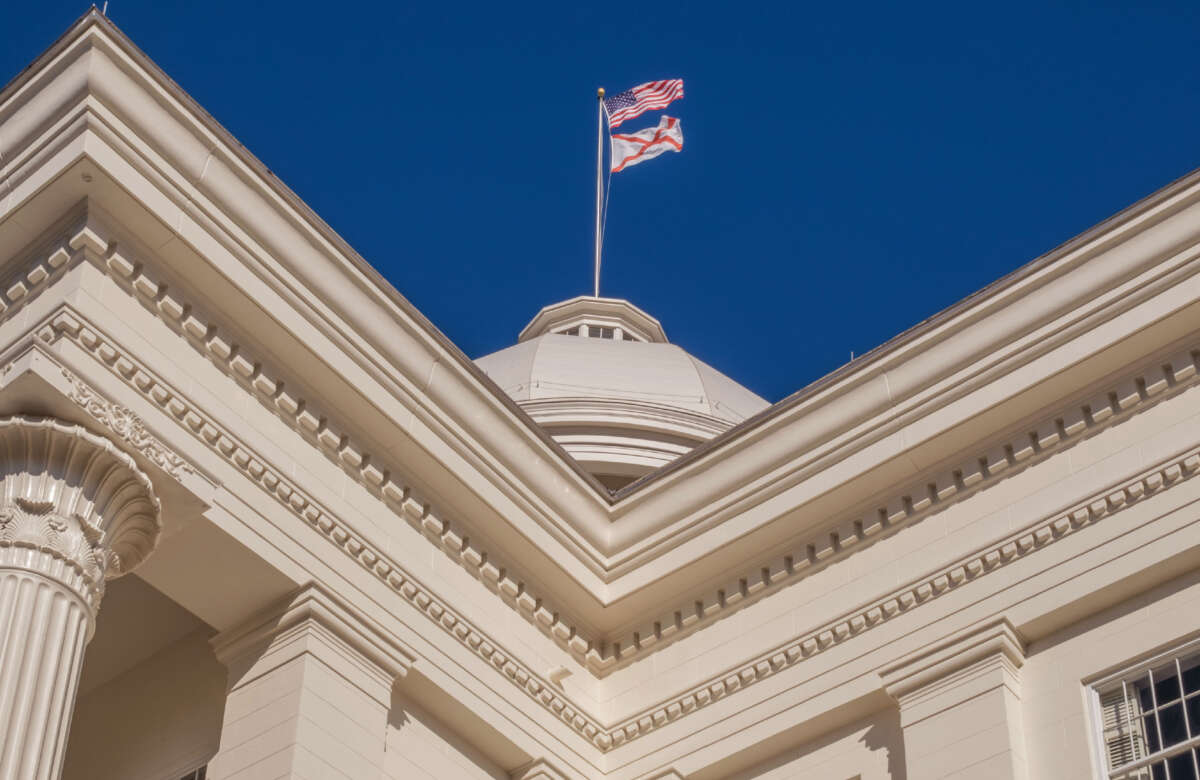Truthout is a vital news source and a living history of political struggle. If you think our work is valuable, support us with a donation of any size.
The Republican-controlled Alabama state legislature is set to defy a mandate from the U.S. Supreme Court and other appellate courts by passing a new congressional map that will only include one majority-Black district.
After the last census, Alabama passed new maps that “packed” Black voters in the state within a single district. A federal court ruled last year that the map in question was unfair, saying that it diluted the electoral power of Black residents, who make up 27 percent of the state population.
In a decision that surprised some legal experts, the Supreme Court affirmed that ruling in June, finding that the map had violated portions of the Voting Rights Act (VRA). The Court ordered Alabama to redraw its maps, and the state legislature convened a special session this month in order to comply.
But the maps passed by both houses of the legislature this week still create only one House district where Black voters would be the majority.
The House maps create one district in which 52 percent of voters are Black and another district in which 42 percent of voters are Black. In the Senate version of the maps, Black voters account for only 38 percent of the second district.
The two houses are meeting in conference on Friday to decide which map to use or whether to create a compromise map, after which both houses will have to vote on the bill again.
The federal court that found the old map unconstitutional required lawmakers to draw a map featuring two districts in which Black voters would be the majority “or something close to it.” If one of the two maps advances and is signed into law, it will be up to that same court to decide whether the second district, which won’t have a majority, is comprised of enough Black voters to pass scrutiny under the VRA. The matter could also return to the Supreme Court, which would make the final decision on the matter.
The issue has drawn the attention of lawmakers in Washington, D.C. House Speaker Kevin McCarthy (R-California) has reportedly reached out to Alabama Republican map-drawers to encourage them to draw boundaries that will preserve his tenuous majority in the House. Republicans only have a five-seat majority in that chamber of Congress.
The campaign Twitter account for Hakeem Jeffries (D-New York), the Democratic House Minority Leader, has also weighed in on the matter.
“MAGA extremists are desperate to run on an illegal and racially gerrymandered House map. Why? That’s the only way they can win,” the account wrote, attaching a news report on the development.
Democrats in the Alabama state legislature decried the new maps as still illegal and a waste of time, as they would likely fail to pass muster upon judicial review.
“Why can’t we in Alabama one time do what’s right?” said state Rep. John Rodgers (D).
Whichever new map is selected, “it’s an opportunity to fail,” said state Sen. Rodger Smitherman.
A terrifying moment. We appeal for your support.
In the last weeks, we have witnessed an authoritarian assault on communities in Minnesota and across the nation.
The need for truthful, grassroots reporting is urgent at this cataclysmic historical moment. Yet, Trump-aligned billionaires and other allies have taken over many legacy media outlets — the culmination of a decades-long campaign to place control of the narrative into the hands of the political right.
We refuse to let Trump’s blatant propaganda machine go unchecked. Untethered to corporate ownership or advertisers, Truthout remains fearless in our reporting and our determination to use journalism as a tool for justice.
But we need your help just to fund our basic expenses. Over 80 percent of Truthout’s funding comes from small individual donations from our community of readers, and over a third of our total budget is supported by recurring monthly donors.
Truthout has launched a fundraiser to add 432 new monthly donors in the next 7 days. Whether you can make a small monthly donation or a larger one-time gift, Truthout only works with your support.
